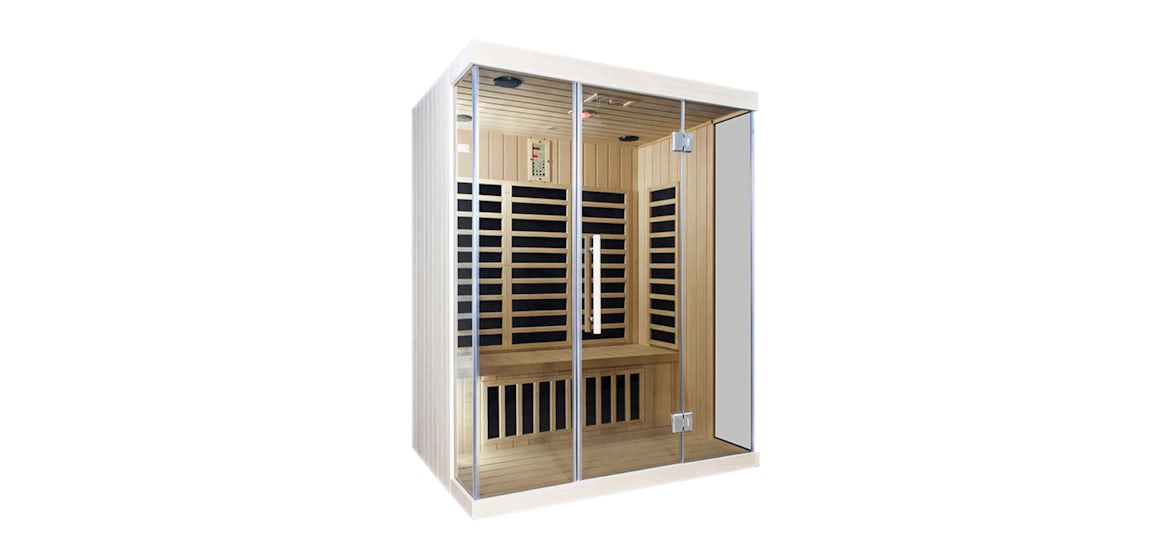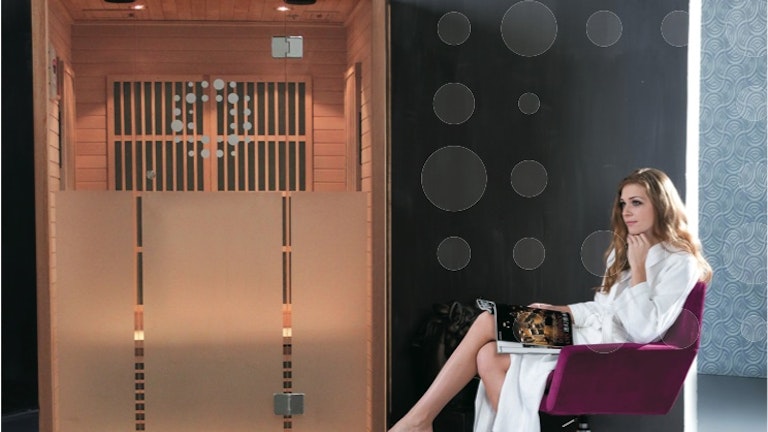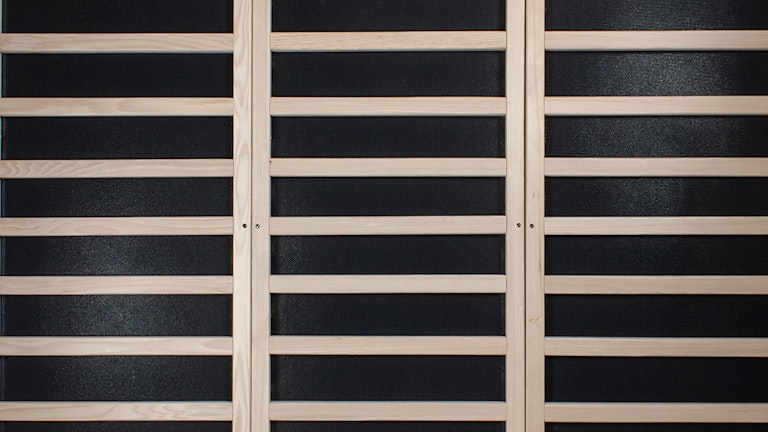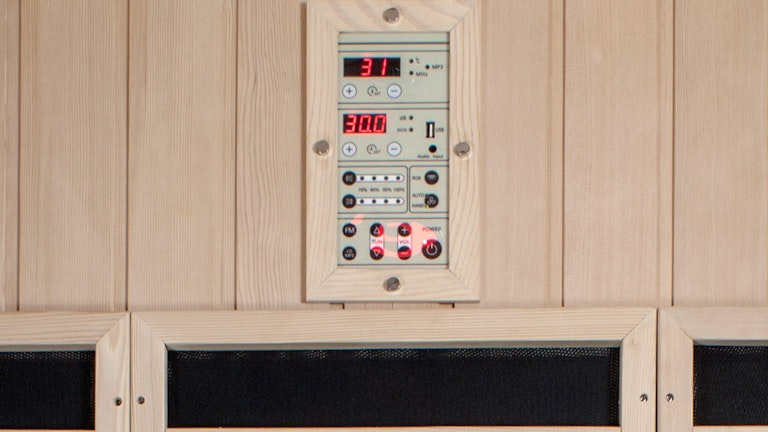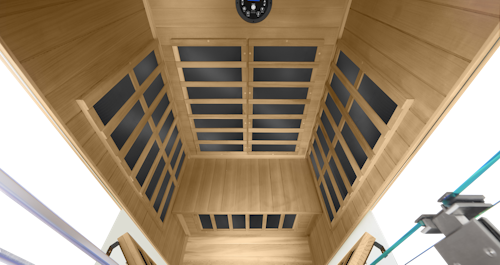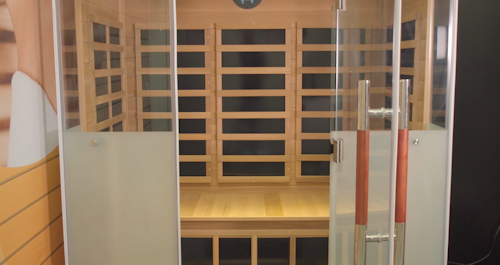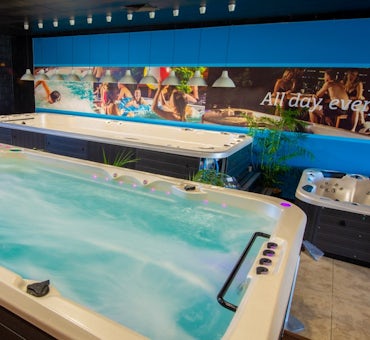In this in-depth article, we explain everything you need to know about infrared saunas before you buy. By the end, you should know all about infrared saunas, how they work, what they do and more!
We cover:
- What is infrared
- What is an infrared sauna
- Key features of an infrared sauna
- Infrared sauna versus steam sauna
- How do infrared saunas work?
- What infrared heat is best?
- Is infrared safe?
- Infrared sauna benefits
- How much electricity does an infrared sauna use?
- How much does an infrared sauna cost?
- Infrared sauna pros and cons
- Should I install an infrared sauna?
- Should I use an infrared sauna?
- Summary
